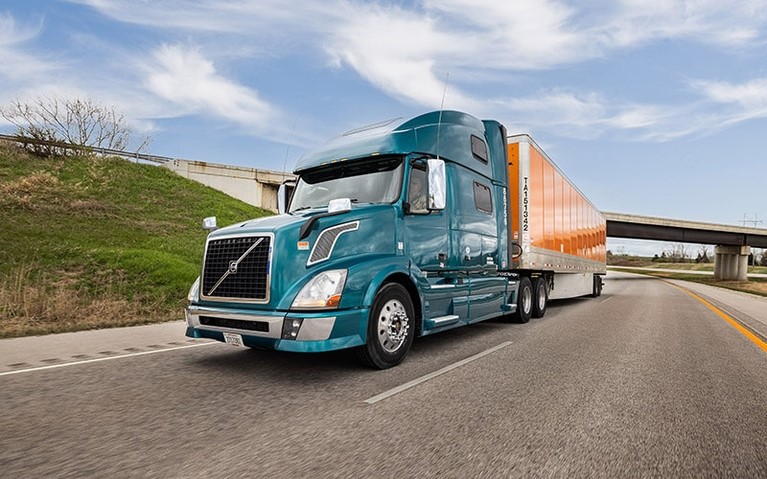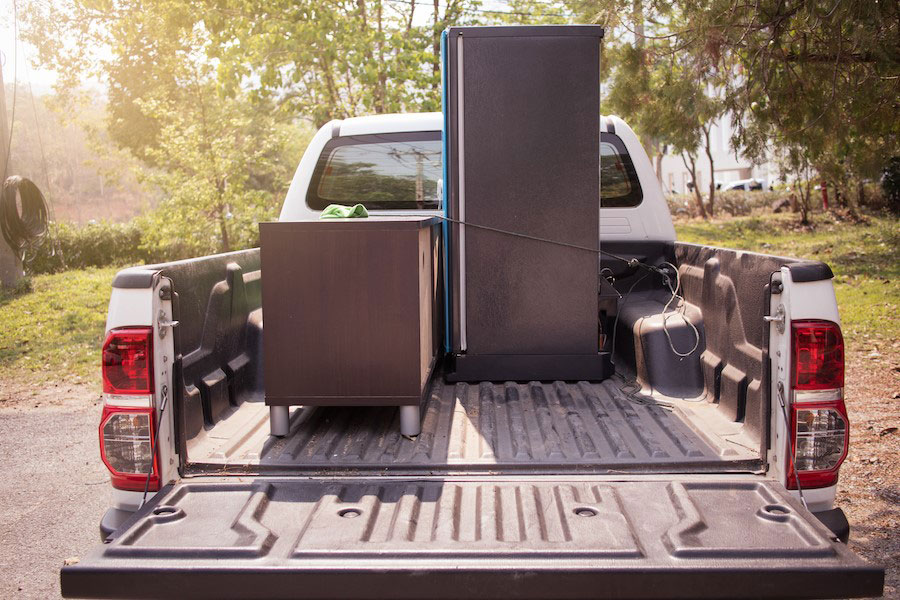Table of Contents
Setting up your trailer truck business as a Limited Liability Company (LLC) is a strategic move that combines the best of both worlds: protection and flexibility. See the essential steps and reasons you should opt for this business structure.
First and foremost, establishing your trailer truck business as an LLC involves a few key steps. Begin by choosing a unique name for your LLC and ensuring it complies with your state’s naming rules. Next, you need to file articles of organization, a relatively straightforward process. Draft an operating agreement, which outlines the management structure and operating procedures within your LLC. Additionally, you must obtain any necessary licenses and permits specific to the trucking industry.
Now, delve into the benefits of forming an LLC. The primary advantage lies in the liability protection it offers. As the owner, your personal assets remain shielded from business debts and legal claims. This means your home, savings, and personal property are safeguarded, even if your business encounters financial trouble or faces a lawsuit.
Furthermore, tax flexibility is another significant perk. LLCs allow you to choose how you want your business income to be taxed, offering a variety of options, such as pass-through taxation. This can lead to potential tax savings and simplify your tax reporting.
Here are the steps you must take to set up your trailer truck business as an LLC:
1. Choose a Business Name
Choosing an appropriate name for your LLC is important. You must select a name that adheres to your state’s naming regulations. Generally, it should incorporate “LLC” or “Limited Liability Company” to denote its legal structure. This ensures compliance and clarity for potential clients or partners. A unique and compliant name sets the foundation for your business’s identity, distinguishing it within the legal framework while conveying professionalism. So, choose wisely and consult your state’s guidelines for naming your LLC effectively.
>>>MORE: Trailer Truck Business Plan
2. Register the LLC
To establish a legitimate business entity, file the essential paperwork with your state’s Secretary of State office. This process entails submitting an Articles of Organization, a foundational document that outlines your business’s structure and purpose. Additionally, you may need to pay a filing fee, which varies by state.
The Articles of Organization serve as a formal declaration of your business’s existence and legal structure, typically including details about ownership, management, and the business’s registered agent. By completing this step, you’re complying with state regulations and gaining legal recognition for your business.
Ensure that you thoroughly research your state’s specific requirements and fees. Timely and accurate filing is crucial to avoid legal issues and to establish a solid foundation for your new venture.
3. Appoint a Registered Agent and Create an Operating Agreement
To ensure the smooth operation of your LLC, designate a registered agent. This individual or entity plays a pivotal role in receiving legal documents and official correspondence on behalf of your company. The registered agent acts as the liaison between your LLC and the state’s legal system. It is responsible for promptly forwarding any legal notices, lawsuits, or government notifications to your company.
Selecting a reliable registered agent is not a choice but a requirement in many jurisdictions. It ensures that your business stays compliant with legal obligations, maintains privacy, and avoids potential complications. Always verify the qualifications and availability of your designated registered agent to safeguard your LLC’s legal interests.
Also, creating an operating agreement is essential for LLCs. While not always obligatory, it serves as a best practice. This document details ownership and operational procedures, providing a solid foundation. It outlines who owns what and how the business functions, fostering clarity and stability. This agreement plays a pivotal role in averting conflicts down the road. When members understand their roles and responsibilities, disputes are less likely to arise. It’s a proactive step that safeguards the LLC’s integrity and ensures smooth operations.
4. Obtain an EIN (Employer Identification Number)
Obtaining an Employer Identification Number (EIN), often referred to as a Federal Tax Identification Number, is a pivotal step when establishing a business. The EIN, issued by the Internal Revenue Service (IRS), serves as the business’s unique identifier for tax-related matters. It plays a critical role in ensuring compliance with tax regulations, making it indispensable for any enterprise.
In the present moment, as you embark on your entrepreneurial journey, you require an EIN to meet various tax obligations, such as filing income tax returns and reporting employment taxes. Without it, your business may face complications in the form of fines and legal issues.
Moreover, an EIN is instrumental in opening a dedicated business bank account. This account separation is vital for keeping your personal and business finances distinct, which is not only practical but also aids in maintaining financial clarity and organization. In essence, acquiring an EIN is a fundamental and non-negotiable step in the process of setting up and managing a successful business.
5. Get the Necessary Permits and Licenses
When establishing your trucking business, conduct due diligence by checking with local, state, and federal authorities. Presently, this means reaching out to these agencies to ascertain the necessary permits, licenses, or registrations for your operation. This process encompasses various requirements, such as DOT (Department of Transportation) permits and licenses, which are essential for compliance and legal operation.
By engaging with the relevant authorities in the present moment, you ensure that your trucking business aligns with the prevailing regulations and is equipped with the proper documentation. This proactive approach not only establishes your business’s legitimacy but also helps avoid potential legal issues in the future. Therefore, stay current and informed by maintaining a proactive dialogue with the pertinent authorities to ensure your trucking venture’s success.
6. Secure Insurance and Comply with Tax Requirements
To safeguard your trucking business, ensure you acquire vital insurance coverage. Start with commercial auto insurance, providing protection for your vehicles. Liability insurance shields against potential legal claims, while cargo insurance safeguards your valuable cargo. These policies are essential for mitigating risks and maintaining the security and longevity of your trucking operation.
Also, understand and comply with tax obligations. This means staying current with federal, state, and local tax requirements. Depending on your business’s location and activities, you might need to register for sales tax or other business-related taxes. Meeting these obligations ensures legal and financial stability.
>>>GET SMARTER: Trailer Truck Business Accessories You Need to Succeed
7. Maintain Records and Adhere to Safety Regulations
Maintaining meticulous financial records, encompassing income, expenditures, and business transactions, remains paramount. These records serve as the bedrock for effective tax compliance and prudent financial stewardship. In the present, they empower businesses to make informed decisions and ensure fiscal accountability. Diligence in record-keeping is not merely advisable; it is an imperative practice for sustainable financial health and legal compliance.
Ensure strict adherence to safety regulations and requirements set by the Department of Transportation (DOT). This involves maintaining well-maintained vehicles, driver training, and regular safety inspections. By following these guidelines, you not only protect your drivers and cargo but also maintain a strong reputation and avoid potential legal issues.
Recap
In conclusion, setting up your trailer truck business as an LLC provides crucial protection for your personal assets, flexibility in tax matters, and a professional business structure. It’s a smart move that can empower your business while mitigating risks. Consult with a legal professional or a business advisor to navigate the process seamlessly and ensure compliance with your state’s specific requirements.
Remember that the specific requirements and regulations can vary by state and may change over time, so ensure you consult with legal and financial professionals who can provide guidance tailored to your situation.



















